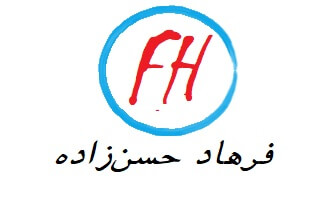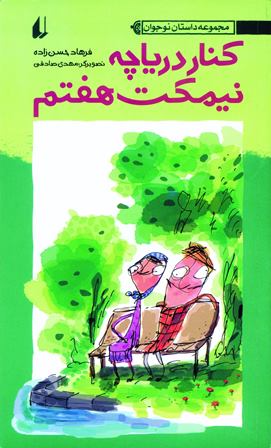The 7th Bench by the Lake
Translation rights sold:
The first two short stories tell the story of an oblivious teacher, ignorant of her teenage students and their need for privacy. “Second Class Jin” is about a boy named Majib whose nightly job prevents him from actively participating in classes, haunted by his troubled and weary life, Majib is the author’s objective portrayal of the bitter lives of working children and the inefficiency of the educational system in relation to their suffering and short-comings….
“Where does the world ends?” is the first short story from a collection of short stories entitled, The 7th Bench by the Lake. But where exactly does the world end? This very question sets Farhad Hassan Zadeh on a journey through the layers of young adult life connecting them to adulthood. This collection of seven short stories is best described as the author peeking with curious eyes into the lives of a generation of future Iranian adults.
The first two short stories tell the story of an oblivious teacher, ignorant of her teenage students and their need for privacy. “Second Class Jin” is about a boy named Majib whose nightly job prevents him from actively participating in classes, haunted by his troubled and weary life, Majib is the author’s objective portrayal of the bitter lives of working children and the inefficiency of the educational system in relation to their suffering and short-comings.
“…you snatched her diary and read it without her consent; then you told the others and spilled her secret too. The most despicable deed of all: You almost had the lines of Ahoo’s Diary read aloud from the school speakers. Such a shame! I wish you had, and then everyone would know that no one deserves a private corner anymore …and Ahoo…poor exposed Ahoo…it was as if she had reached the end of the world… Mrs. Moradi examined the notebook like a detective and asked it has a lock? My heart was pumping out of my chest. I wanted to shout at her, yes ma’am! It does, so does our private homes…”
“Like all the Rabbits”, alarms the adult readers not to ignore the most natural and ordinary human sensitivities and behaviors in the mundanities of everyday life. In “Fish’s homework, Fish’s tears”, we are witness to the physical punishment of a young boy by his mother despite no significant error worthy of her wrath. The boy recounts his troubles in solitude, refusing to avenge, he forgives and moves on.
Farhad Aslan Zadeh’s smooth prose obliges the reader for compassion and identification; the suspense captures their attention till the very end. The stories mirror the lives of several Iranian teenage generations, a critical phase in everyone’s life where we learn to shed a new skin and enter the mysterious world of adulthood.
“… Why on earth you want to spend your money on a rabbit? Watch how it walks, it’s funny…like this…see…. He imitated the rabbit’s walk clumsily. The boy trembling even more yelled: Why do you make fun of him? He was not crying but his eyes were misty like rainy days. He threw his money at the man and said: Here! Take it! I’ll get you the rest too. Get it? The man did not have time to reply. He saw the boy kiss the rabbit and stumble out of the shop.”
“Chicken Finger” is the story of the dangerous conflict of a teenage boy with a middle aged stranger. His challenge is to resolve and escape to safety. In our first encounter with the boy, his detachment from society, school and his family is bizarrely terrifying yet to the eyes of more attentive readers, sarcastic and witty.
Yet the final two stories of the collection, “Cotton Islands” and “By the Lake, The Seventh Bench” depict the foot prints of love in teenage years: The love story of a neighbor boy and girl, and the sudden infatuation of a boy for the most beautiful lady on earth: Stories of passion, mistakes and delusion through which the author cleverly stays away from admonition and preaching, taking along the readers through the details of his protagonists’ relationships.
The subjects of ethics and righteous behavior along with the exemplary humorous tone create these extraordinary stories: Forgiveness, grudge, protection and compassion, seeking solutions for everyday teenage struggles, facing fears and troubles and the reality of their loves are themes touched delicately by the author effortlessly relatable by young adult readers.
The main connection cord in all the seven stories is the teenage experience of school life, society and the experience of living amongst others ending with an exceptionally moving story of flirting and love retold in a dentist’s office during the painful experience of pulling a teeth. This collection is best described as an endeavor in showing puberty with all its sensitivities, challenges and crisis, as if the author himself is welcoming his young adult readers into the new territory of adulthood.


